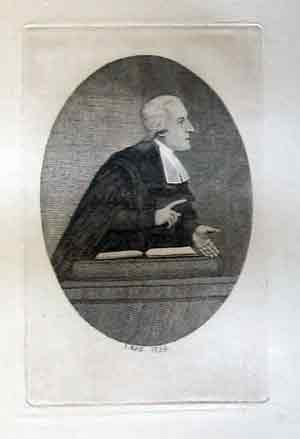Seleccionar idioma español/Choisissez la langue français

Two hundred years ago, students at the
English Universities were required to attend church regularly, and to receive the
Holy Communion at least once a year. This latter requirement often had bad effects,
in that it encouraged hypocrisy and an irreverent reception of the sacrament. Occasionally,
however, it had a very good effect, as with the Cambridge student Charles Simeon.
He wrote: "On 29 January 1779 I came to college. On 2 February I understood
that at division of term I must attend the Lord's Supper. The Provost absolutely
required it. Conscience told me that, if I must go, I must repent and turn to God."
By this experience his life was transformed. Upon finishing his college work he was
ordained, and shortly appointed chaplain of Holy Trinity, Cambridge, where he remained
for 55 years, until shortly before his death on 12 November 1836. His ministry helped
to transform the lives of many undergraduates, of whom we may mention two in particular. Henry
Martyn (see 19 Oct), inspired by Simeon, abandoned his intention of going into
law and instead devoted his life and his considerable talents to preaching the Gospel
in India and Persia. William
Wilberforce (20 July), also led in part by Simeon's ministry of teaching and
example, devoted his life to the abolition of slavery throughout the British Empire.
Simeon's enthusiasm and zeal brought him much ridicule and abuse, which he bore uncomplainingly.
Though he himself remained in one place, his influence extended through the Anglican
world.
written by James Kiefer
O loving God, who order all things by your unerring wisdom and unbounded love: Grant us in all things to see your hand; that, following the example and teaching of your servant Charles Simeon, we may walk with Christ in all simplicity, and serve you with a quiet and contented mind; through Jesus Christ our Lord, who lives and reigns with you and the Holy Spirit, one God, now and for ever. Amen.